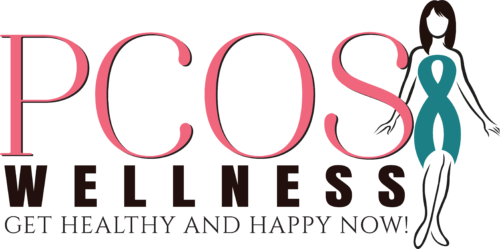
Binge Eating Disorder (BED) is a relatively new official diagnosis, but it’s not really new. Especially to women with PCOS, binge eating is old news. It is probably the most common form of eating disorder among women with PCOS. It’s estimated that nearly 100% of women with PCOS have an active eating disorder or history of an eating disorder. The connections between PCOS and binge eating are numerous and complex. Involving a combination of emotional and physiological factors. I recently attended a professional education weekend at Green Mountain at Fox Run, where they treat unhealthy eating behaviors. This program is unusual in that they have a lot of knowledge about women with PCOS.
What is Binge Eating Disorder?
I think it’s really important to be clear about what is and is not a binge eating disorder, so I’m including the complete diagnostic criteria from the DSM-5, which lays out all of the details of a diagnosis. Basically, if it’s not anorexia or bulimia, it’s likely binge eating disorder. It’s estimated that 30 – 40% of people with eating disorders have BED.
- Recurrent episodes of binge eating. An episode of binge eating is characterized by both of the following:
- Eating, in a discrete period of time (e.g., within any 2-hour period), an amount of food that is definitely larger than what most people would eat in a similar period of time under similar circumstances.
- A sense of lack of control over eating during the episode (e.g., a feeling that one cannot stop eating or control what or how much one is eating).
- The binge eating episodes are associated with three (or more) of the following:
- Eating much more rapidly than normal.
- Eating until feeling uncomfortably full.
- Eating large amounts of food when not feeling physically hungry.
- Eating alone because of feeling embarrassed by how much one is eating.
- Feeling disgusted with oneself, depressed, or very guilty afterward.
- Marked distress regarding binge eating is present.
- The binge eating occurs, on average, at least once a week for three months.
- The binge eating is not associated with the recurrent use of inappropriate compensatory behaviors (e.g., purging) as in bulimia nervosa and does not occur exclusively during the course of bulimia nervosa or anorexia nervosa.
This definition is somewhat different than past descriptions you may have heard, like that you have to eat 5,000 calories in an hour for it to qualify as a binge. If it’s not binge eating disorder, you may still have unhealthy eating behaviors, as I discuss in “Tackling Boredom Based Eating.”
I don’t think I have an eating disorder, so why should I care about BED?
Here’s the scary thing: just like other eating disorders, BED is potentially fatal. Binge eating is also associated with a lot of other mental health issues, like depression and anxiety. And the combination of eating disorder plus mood disorder is very common in women with PCOS.
BED is kind of insidious too. It’s an easy eating disorder to overlook, especially if you’re close to “normal” weight. That means most medical professionals aren’t looking for it, and neither are psychotherapists (unless they specialize in eating disorders or medical issues, like I do). If you think you might have BED, it’s important to find a therapist who gets it, and tell them what concerns you about your eating behavior.
Binge Eating Treatment: How do you recover from BED?
The first thing to know is that you can’t do this alone. Eating disorders don’t happen in a vacuum, and you are going to need some help to discover your root causes, while figuring out how to make big changes in your life. Willpower alone will definitely not cut it.
There’s a lot of secrecy, shame, and guilt about compulsive eating and eating disorder behavior. That doesn’t heal through harsh treatment; most people with BED are already more than a little harsh on themselves.
Reducing the unhealthy obsession with food takes time and tenderness. You need an awareness of behaviors and an awareness of the causes. If that includes trauma in your past, that needs to be addressed with compassion.
Seeking Help: How do I find out more?
The National Eating Disorders organization and Binge Eating Disorders association are both great places to get more information that’s accurate and unbiased. And if you’re scared or concerned about yourself or the eating behavior of someone you love, reach out to me at AskDrGretchen@gmail.com.
I’ll be writing more in coming months about different aspects of what we discussed at Green Mountain at Fox Run, and how it applies to women with PCOS.


